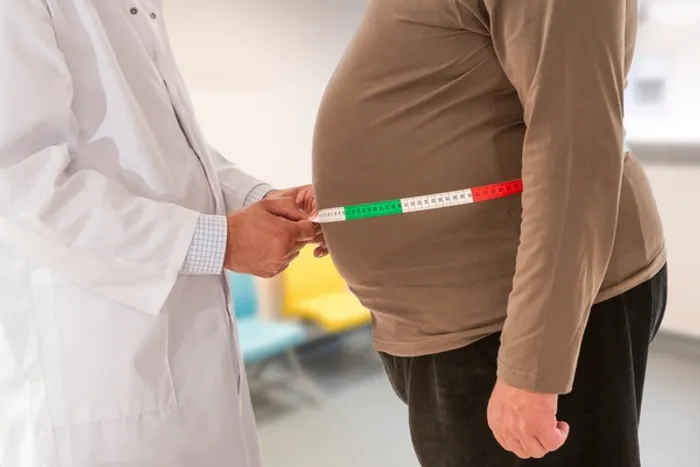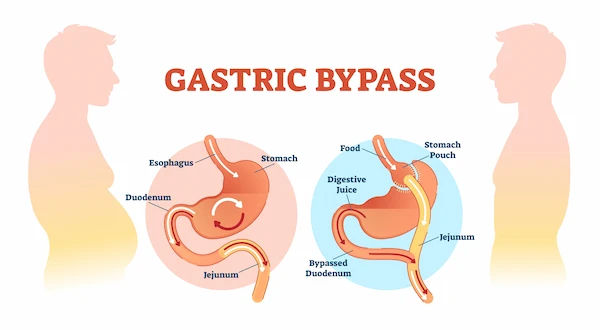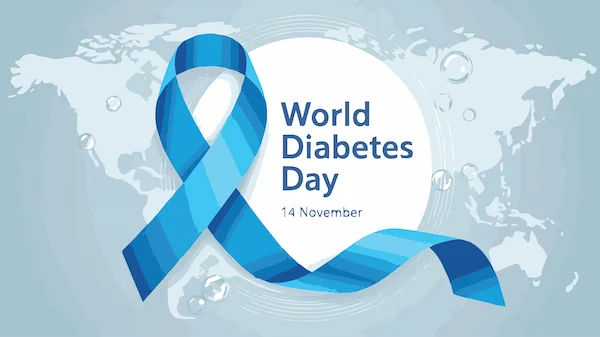The Heavy Burden: Understanding the Critical Link Between Obesity and Kidney Disease
Discover how obesity directly impacts kidney health, the diseases linked to it, and effective prevention strategies to protect your renal function.


Introduction
Carrying excess weight is often discussed in terms of its impact on the heart or joints, but one of the most significant—and frequently overlooked—risks lies deep within your abdomen: your kidneys. These two bean-shaped organs work tirelessly as your body's filtration system, and obesity places an immense, silent strain on them. The connection between obesity and kidney health is not just correlational; it's a direct cause-and-effect relationship that can lead to severe diseases. This article will demystify this critical link, explaining the physiological mechanisms at play, identifying the specific kidney diseases associated with a high BMI, and outlining the powerful steps you can take to protect your renal health. Whether you're concerned for yourself or a loved one, understanding this connection is the first step toward prevention and taking back control of your well-being.
How Your Weight Directly Impacts Your Kidney Health
The kidneys are marvels of biological engineering, filtering about 200 quarts of blood daily to remove waste and excess fluid. However, this delicate system is highly sensitive to the metabolic changes caused by obesity. The primary way excess weight harms the kidneys is by forcing them to work much harder than they were designed to.
The Mechanics of Filtration: A Delicate Balance
Each kidney contains about one million tiny filtering units called nephrons. In individuals with obesity, the body requires more blood flow to support the increased tissue mass. To meet this demand, the heart pumps more blood, and the flow to the kidneys increases. This sounds like a good thing, but it's akin to forcing a water filter to operate at maximum pressure constantly. The nephrons are subjected to a higher glomerular filtration rate (GFR), a condition known as hyperfiltration.
The Domino Effect: Hyperfiltration and Its Consequences
This state of hyperfiltration is the body's initial adaptive response, but it's unsustainable. Over time, the increased pressure and workload damage the nephrons' delicate filtering membranes. Think of it as overworking an employee without a break—eventually, burnout and failure occur. As nephrons become damaged and die off, the remaining healthy ones are forced to work even harder, creating a vicious cycle of progressive injury. This is a fundamental mechanism behind the development of obesity-related kidney disease. Furthermore, fat cells, especially visceral fat around the abdomen, are biologically active. They release inflammatory proteins and hormones that further contribute to kidney damage and scarring.
Specific Kidney Diseases Fuelled by Obesity
The chronic stress of obesity on the renal system can manifest in several specific and serious conditions.
Obesity-Related Glomerulopathy (ORG): A Silent Threat
ORG is a distinct kidney disease directly linked to a high Body Mass Index (BMI). It is characterised by the enlargement of the glomeruli (the kidney's main filters) and scarring (glomerulosclerosis). Often, it presents with little to no symptoms in its early stages, making it a "silent threat." Protein leakage into the urine (albuminuria) is a key early sign. The incidence of ORG has increased tenfold over the past few decades, paralleling the rise in obesity rates.
Consult a Nephrologist for the best advice
Chronic Kidney Disease (CKD): The Slow Decline
Obesity is a major independent risk factor for developing CKD, a condition where kidney function gradually declines over months or years. According to the National Kidney Foundation, individuals who are overweight or obese are twice as likely to develop CKD compared to those with a healthy weight. As kidney function drops, waste products build up in the blood, leading to complications like high blood pressure, anaemia, weak bones, and nerve damage.
The Dangerous Trio: Obesity, Diabetes, and High Blood Pressure
Obesity rarely works alone. It is the cornerstone of metabolic syndrome, a cluster of conditions that dramatically amplify kidney damage. It significantly increases the risk of developing type 2 diabetes and hypertension (high blood pressure), which are the two leading causes of end-stage renal disease (ESRD) worldwide. High blood sugar from diabetes damages the kidneys' blood vessels, while hypertension puts relentless pressure on them. When obesity is part of the equation, the damage is accelerated and more severe.
Recognising the Warning Signs and Getting Tested
Early detection of kidney disease is crucial because symptoms often appear only after significant damage has occurred. Being proactive is key, especially if you are living with obesity.
Symptoms You Should Never Ignore
While early-stage kidney disease is often silent, be alert to these potential warning signs:
- Fatigue and difficulty concentrating: Due to a build-up of toxins and anaemia.
- Trouble sleeping: When kidneys aren't filtering properly, toxins remain in the blood, disrupting sleep.
- Puffiness around the eyes, swollen ankles/feet: Caused by the kidneys' inability to remove excess fluid (oedema).
- Foamy or bubbly urine: Indicates the presence of protein (proteinuria).
- Persistent itching: From the build-up of waste products in the blood.
If you experience these symptoms persistently, especially if you have risk factors like obesity, consult a doctor online with Apollo24|7 for further evaluation.
Key Diagnostic Tests for Kidney Function
You don't have to wait for symptoms. Simple tests can assess your kidney health:
- Blood Test for Serum Creatinine: This measures the level of creatinine, a waste product, in your blood. High levels suggest poor kidney function.
- Urine Test for Albumin-to-Creatinine Ratio (UACR): This detects albumin (a type of protein) in the urine, an early sign of kidney damage.
- Glomerular Filtration Rate (GFR): This is calculated from your blood creatinine level, age, sex, and other factors. It's the best measure of overall kidney function.
- Apollo24|7 offers convenient home collection for tests like these, making it easy to monitor your kidney health.
Taking Control: Effective Strategies for Prevention and Management
The most encouraging news is that the damage caused by obesity to the kidneys is largely preventable and, in many cases, reversible, especially in the early stages.
The Power of Weight Loss: Even a Little Helps a Lot
The single most effective intervention is sustainable weight loss. Studies show that losing even 5-10% of your total body weight can significantly reduce hyperfiltration, lower blood pressure, improve glucose control, and decrease proteinuria. For someone weighing 200 pounds (90 kg), this means losing just 10-20 pounds (4.5-9 kg). This can improve kidney function with weight loss and slow or even halt the progression of CKD.
Building a Kidney-Healthy Plate: Dietary Guidelines
A balanced diet is non-negotiable. Focus on:
- Reducing Sodium: Helps control blood pressure. Avoid processed foods and added salt.
- Choosing Lean Proteins: Opt for fish, poultry, and plant-based proteins over red meat.
- Incorporating Fruits and Vegetables: They provide essential vitamins and fibre.
- Limiting Phosphorus and Potassium (if advised by a doctor): In advanced kidney disease, monitoring these minerals is crucial.
Consulting a registered dietitian can help you create a personalised diet for obese patients with kidney disease.
The Role of Physical Activity
Regular exercise aids weight loss, reduces blood pressure, and improves insulin sensitivity—all of which benefit the kidneys. Aim for at least 150 minutes of moderate-intensity exercise (like brisk walking) per week.
Conclusion
The evidence is clear: carrying excess weight is a heavy burden for your kidneys. The path from obesity to serious kidney diseases is well-established but not inevitable. By understanding the mechanisms—hyperfiltration, inflammation, and the amplification of conditions like diabetes and hypertension—you are empowered to take action. The journey to renal health begins with manageable steps: a commitment to a healthier diet, incorporating regular movement, and, most importantly, achieving and maintaining a healthy weight. Remember, your kidneys are vital, silent partners in your overall health. It's never too late to lighten their load. If you are concerned about your weight and its impact on your health, booking a physical visit to a doctor with Apollo24|7 can provide you with a personalised assessment and management plan.
Consult a Nephrologist for the best advice
Consult a Nephrologist for the best advice

Dr. Hareesha Babu K
Nephrologist
25 Years • MBBS, MD (General Medicine), DM (Nephrology),FASN, FRCP(Glasg), FRCP (Edin)
Bangalore
Kidney & Hypertension Care, Bangalore

Dr. Pardha Saradhi
Nephrologist
9 Years • MBBS, MD-DNB (Gen. Med.), DNB (Nephro)
Hyderabad
Apollo Hospitals D R D O kanchanbagh, Hyderabad
(75+ Patients)
Dr Gayatri Pegu
Nephrologist
15 Years • MD (General Medicine) DM(Nephrology)
Guwahati
Apollo Clinic Guwahati, Assam, Guwahati
Dr Ch Sashidhar
Nephrologist
20 Years • MBBS, MD General Medicine, DNB, Nephrology
Secunderabad
Apollo Hospitals Secunderabad, Secunderabad

Dr Praveen Kumar Etta
Nephrologist
10 Years • MBBS,MD DM(SGPGI) FORMER ASST(PIMS)
Hyderabad
Apollo Spectra Ameerpet, Hyderabad
Consult a Nephrologist for the best advice

Dr. Hareesha Babu K
Nephrologist
25 Years • MBBS, MD (General Medicine), DM (Nephrology),FASN, FRCP(Glasg), FRCP (Edin)
Bangalore
Kidney & Hypertension Care, Bangalore

Dr. Pardha Saradhi
Nephrologist
9 Years • MBBS, MD-DNB (Gen. Med.), DNB (Nephro)
Hyderabad
Apollo Hospitals D R D O kanchanbagh, Hyderabad
(75+ Patients)
Dr Gayatri Pegu
Nephrologist
15 Years • MD (General Medicine) DM(Nephrology)
Guwahati
Apollo Clinic Guwahati, Assam, Guwahati
Dr Ch Sashidhar
Nephrologist
20 Years • MBBS, MD General Medicine, DNB, Nephrology
Secunderabad
Apollo Hospitals Secunderabad, Secunderabad

Dr Praveen Kumar Etta
Nephrologist
10 Years • MBBS,MD DM(SGPGI) FORMER ASST(PIMS)
Hyderabad
Apollo Spectra Ameerpet, Hyderabad
More articles from Obesity
Frequently Asked Questions
Can losing weight reverse kidney damage caused by obesity?
In many early-stage cases, yes. Significant weight loss can reduce hyperfiltration and lower proteinuria, effectively slowing progression and, in some instances, improving measured kidney function (GFR). The earlier you act, the greater the potential for reversal.
What is the best type of weight loss plan for someone with kidney disease?
There is no one-size-fits-all plan. A diet should be tailored to your specific stage of kidney function. Generally, it involves controlled portions, low sodium, and moderated protein intake. It's essential to work with a doctor and a dietitian to create a safe and effective plan.
I'm obese but don't have diabetes or high blood pressure. Am I still at risk for kidney disease?
Yes. While diabetes and hypertension greatly increase the risk, obesity is itself an independent risk factor for kidney disease due to the direct mechanisms of hyperfiltration and inflammation discussed above.
How much exercise is needed to protect my kidneys?
Aim for at least 150 minutes per week of moderate aerobic activity (e.g., 30 minutes, 5 days a week) combined with strength training twice a week. Consistency is more important than intensity.
Are there any specific symptoms of kidney disease I should look for if I am obese?
Be particularly alert to unexplained swelling in your ankles or feet, persistently foamy urine, and unusual fatigue. However, do not wait for symptoms; proactive screening with blood and urine tests is recommended.


.webp)

